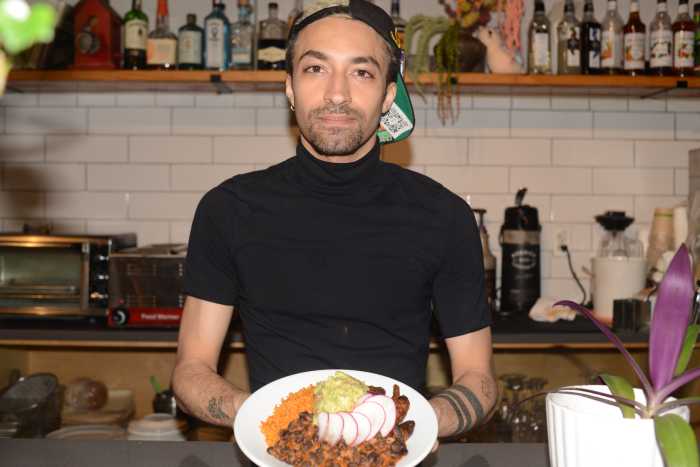BY KELLY JEAN COGSWELL | Some people come to France to smoke Gitanes and eat croissants. I spent my first few days assembling Ikea products for my girlfriend’s Cuban family. The first item was a bookcase, the second a nightstand to go by my mother-in-law’s bed. Our household speaks English, Spanish, and French, and it sometimes feels like my head might explode. There are so many words at our disposal to describe a single thing, like a hammer, that Ikea miraculously communicates with a simple drawing.
It reminds me that while the differences of culture and language have a real impact on our lives and perceptions, (fromage sounds so much tastier than cheese) they’re still pure artifice. Humans have more in common than we admit. At the very least, we face a continual struggle with the physical world and how to contain it. Even the poor have their sacks and carts. I have this wooden Ikea nightstand with a capacious drawer that needs a coat of varnish. We all have bodies holding their own, even with failing parts.
My mother-in-law is 91 now. A year ago, when she couldn’t live alone in Queens anymore, we helped her move to her son’s place in France. She just got out of the hospital after falling and cracking a vertebrae. She already had reduced mobility and the stoner’s brain that comes with age and a bunch of mini-strokes.
A Dyke Abroad
All our time is spent in vigilance, making sure she has help standing up and sitting down. She’s already forgotten why she was in the hospital and doesn’t understand why we freak out when she tries to go it alone. It’s hard for her to shower in a bathtub that requires a lot of gizmos to enter and leave. And taking a walk is a big deal.
I’m deteriorating myself, can’t think about anything but the next load of laundry. What to make for dinner. I’ve read that mothers of small children often feel this way, the circle of their lives reduced, their personalities eroded by confinement to the endless physical world and a tiny vocabulary of “Do this. Do that.” “Oh my god. No! Stop!” At least their charges are small and easier to transport. A small tumble won’t kill them. And little kids learn new tricks every day just like tiny circus dogs. You look at them and see a future. You have hope.
Faustina, though, is gradually forgetting her own self and relinquishing interests along with a lifetime of skills. She doesn’t even pick fights any more, or hardly ever. And submits with indifference to what would have been an indignity six months ago.
We all know what’s coming, if not this week, maybe in a few months. Or a year or two. It makes me anxious and gloomy. I think black thoughts. We just buried her other son 18 months ago after seeing him through several rounds of chemo. Why bother with anything? Life continues but we don’t. Screw the next generation. It won’t last long, anyway. Eighty or 90 years max, with a few exceptions at either end.
Faustina’s dying in slo-mo, and I have nothing to rage against. Nature has no complaint department, no web page. Accepts no petitions. Doesn’t care about who clicks or doesn’t. You can hold all the demos you want, but changes in political policy can’t save her life, just improve it. I readjust my priorities. The qualities I try to cultivate now are patience and kindness, renewed as needed with chocolate and wine.
I could learn from this, but probably won’t. Soon, my girlfriend and I will leave and resume our normalish lives. I’ll forget the nearness of death, how temporary we all are, and the limits of social change. But now that I have that fleeting knowledge, what does it mean? Especially since I’ve spent a lifetime agitating for liberty and equality.
Right now, I’d like to see less rhetoric, more real vision. I’d especially like our community to devote more effort to remembering what we have in common — without diminishing our differences. How about less recrimination and strife? More “Yesses!” Fewer “Nos!”
At the very least we should step outside our daily urgent battles and pretend occasionally that we’ve already prevailed. That the world has been transformed into a just and equal place that has nevertheless preserved room for freedom. Imagining the future is here, let us carry it out into the streets and walk down them fearlessly, as ourselves. And let’s speak as openly as we can, believing that someone will dare understand.
Kelly Cogswell is the author of “Eating Fire: My Life as a Lesbian Avenger,” published this year by the University of Minnesota Press.





























